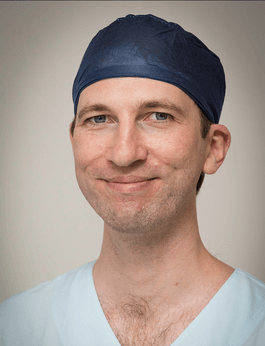Dr David Samson
NT - Northern Territory Specialist Anaesthetist (BMBS BN FANZCA)
My name is Dr David Samson and I will be your anaesthetist. I will work closely with your surgeon to ensure that you receive the best and safest care possible.
My Background
I am a Specialist Anaesthetist and a Fellow of the Australian and New Zealand College of Anaesthetists (FANZCA). I graduated from Deakin University with a Bachelor of Medicine and Bachelor of Surgery in 2012 and completed my Anaesthesia training in Queensland. I have undertaken additional training in pre-hospital and retrieval medicine, safety science, and safety and quality leadership in healthcare.
If you would like to know more about anaesthesia or the role of an anaesthetist please follow this link
Pre-operative Questionnaire
To assist me in planning the safest approach to your anaesthetic, please complete the pre-operative questionnaire in good detail. All information that you provide is confidential and secure.
If you are taking an oral contraceptive pill or have a hormonal contraceptive implant, please include this in your medication list, as there is a relevant anaesthetic medication interaction.
Medications
While most prescribed medications can be safely continued, some of your medications may need to be ceased or adjusted prior to your procedure.
If you are taking blood-thinning medications you must notify your surgeon or proceduralist, who will have specific instructions for you.
You will receive instructions on any alterations to make with your medications before your procedure.
Medications that you have not been asked to stop may be taken with a sip of water for up to two hours prior to your procedure.
Many herbal supplements can affect bleeding or potentially interact with anaesthetic medications. Please discontinue herbal supplements seven days prior to surgery.
Pre-operative Fasting
You will be required to fast before surgery to decrease the risk of regurgitation, which can result in significant complications under anaesthesia.
Unless your surgeon has provided a special fasting regime, the general rules are as follows.
• No solid food within six hours of surgery. Please avoid having a large meal prior to your fast.
• No fluids containing milk products, soluble fibre or particulate matter within six hours of surgery.
• Clear fluids can be continued up until two hours prior to surgery. Patients who drink clear fluids up to two hours prior to surgery experience fewer headaches and less nausea and vomiting after surgery.
Clear fluids include water, pulp-free apple juice, clear cordial, black tea and black coffee.
Before Surgery
• If you become unwell prior to surgery, notify your surgeon.
• If you suspect that you may be pregnant, inform your surgeon or anaesthetist.
• Remove piercings, contact lenses, acrylic nails and nail polish.
• Alcoholic beverages should not be consumed for 24 hours prior to surgery.
• If you are a smoker, quitting prior to surgery can meaningfully improve your surgical outcome and the safety of your anaesthetic. Every day makes a difference.
• Arrange for a responsible person to drive or escort you home upon your discharge. In no instance should you drive yourself.
After Surgery
• Do not drive a car or operate machinery for 24 hours.
• Avoid making important decisions, such as signing important documents, for 24 hours.
• Avoid alcoholic beverages for 24 hours.
• A responsible adult should stay with you at home for at least 24 hours to ensure your safety.
Risks of Anaesthesia
Even in expert hands, complications from medical procedures and anaesthesia can occur. Fortunately, serious events relating to anaesthesia are uncommon.
The likelihood of different complications varies with individual patient factors. However, the following are some approximate values derived from studies of broad patient groups.
Very Common Risks (more than 1 in 10)
• nausea or vomiting
• shivering
• sore throat
• bruising
Common Risks (between 1 in 10 and 1 in 100)
• minor lip or tongue injury
• pain at injection site
Uncommon Risks (between 1 in 100 and 1 in 1000)
• minor nerve injury
Rare Risks (between 1 in 1000 and 1 in 10,000)
• permanent peripheral nerve injury—1:1500
• corneal abrasion (scratch to eye)—1:2800
• aspiration (gastric content entering lungs)—1:4000
• damage to teeth requiring treatment—1:4500
• permanent nerve injury following major regional nerve block—1:5000
• stroke—1:5000–8000
• serious cardiac complications (e.g. heart attack/failure)—1:5000–10,000
• severe allergic reaction—1:10,000
Very Rare (1 in 10,000 to 1 in 100,000 or more)
• awareness during a general anaesthetic—1:20,000
• loss of vision—1:100,000
• death as a direct result of anaesthesia—1:100,000
Anaesthesia Fees
Anaesthesia fees are charged separately to hospital and surgical fees. Depending on the way your procedure is funded, you may be charged a gap (out of pocket payment). Fees are derived from the Australian Society of Anaesthetists’ Relative Value Guide and vary according to the nature and duration of surgery, your age, health status and the anaesthetic procedures performed.
Typically, it is possible to provide an estimate ahead of surgery. The Australian Medical Association and the Australian Society of Anaesthetists set recommendations for anaesthesia fees, I choose to charge fees that are significantly lower than the amounts recommended.
When you complete your pre-op questionnaire you are able to request a quote.
Feedback
Following your procedure, I would appreciate if you could take a few minutes to fill out the Patient Experience Survey. Your answers are completely anonymous and will help me to improve future patient care.
If you would like to discuss any aspect of your anaesthetic, please do not hesitate to contact me.

Dr David Samson
Dr David Samson is an Anaesthetist based in NT - Northern Territory Australia.
Pre-Op Questionnaire for Dr David SamsonPatient Experience Survey for Dr David Samson
Online Forms:
Extra / FAQ Pages:
